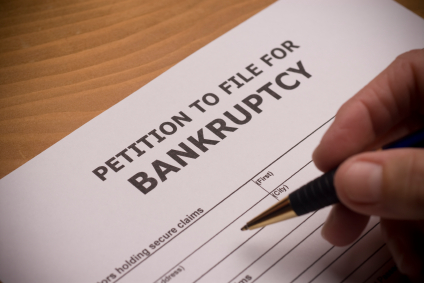Frequently Asked Questions
How long does bankruptcy stay on my credit record? Will I be able to buy a car or get a mortgage in the future?
What does declaring bankruptcy say about me as a person? I owe the money: shouldn't I pay it back?
Won't everyone know about it?
How long does the process take?
What actually happens from the time I hire a bankruptcy attorney?
Do I have to go to court?

Will all my debts be forgiven if I file for bankruptcy?
The degree and kind of debt you may owe after you declare bankruptcy varies from case to case. You will still be responsible for child support and other domestic relations related debts, most student loans, and certain types of tax liabilities and judgments. (Many tax liabilities and most judgments are dischargeable.) Nevertheless, bankruptcy can substantially adjust the manner in which the payment of even these types of obligations must be made. The details of these payments is a question to raise with a bankruptcy attorney.
How long does bankruptcy stay on my credit record? Will I be able to buy a car or get a mortgage in the future?
The quick answer is 10 years, but that does not mean you cannot borrow again. Most people who file for bankruptcy legally eliminate a substantial amount of their debt that would otherwise show up on their credit report. Overall, the new credit report - minus the discharged debt - looks better to new potential lenders than the old one. Even though businesses and lenders are aware of the bankruptcy, in this day and age they are no longer "shocked" by a bankruptcy (yours or General Motors') and respect that people in unworkable financial situations take responsibility and make a new start. Remember, creditors know that people who just don't want to pay their dents just don't pay their debts. People who file bankruptcy are people who do want to pay their debts, and are making every effort to do so. Most people find that their credit actually improves following a bankruptcy.
What does declaring bankruptcy say about me as a person? I owe the money: shouldn't I pay it back?
Everyone would prefer to pay debts and stay out of bankruptcy but the question is whether or not it is possible to do so without sacrificing individual or family necessities. Many people drop health insurance, cash in retirement savings, lose homes, and suffer overwhelming stress rather than file. Bankruptcy is a responsible, legal procedure for resolving debt-related problems. The bankruptcy laws provide relief to those who can demonstrate to a federal judge that, despite their best efforts, they will not be able to manage unless their debt is restructured or eliminated.
Bankruptcy affects hard-working people. A recent study by a Harvard law professor found that people file for bankruptcy when life - or the economy - takes a bad turn and the consequences spiral out of control:

- Over two-thirds have lost jobs and nearly all have experienced a serious illness or divorce.
- Almost half are couples who have experienced serious medical problems and nearly 75% of those had health insurance but found it insufficient.
- The average age of debtors is 38 years old
- Single women account for 30%; 26% are single men
- Compared to the general population, those who file have had a little more education
Won't everyone know about it?
Almost no one will know unless you choose to tell them about your situation. Although bankruptcy filings are part of the public record, it's unlikely that your personal bankruptcy will make headlines. You may be surprised to learn that individuals you see in court with their attorneys are people you know and respect, many like yourself.
How long does the process take?
Typically in a Chapter 7 case, your debts will be eliminated in 90-120 days. You must still pay some debts (see above) and you must continue to make payments on debts that are secured by property, likes houses and cars you wish to (and are permitted to) keep. A Chapter 13 plan is usually "confirmed" (approved by the bankruptcy court) in 60-90 days and typically results in a payment schedule lasting five years.
What actually happens from the time I hire a bankruptcy attorney?
After a thorough examination of your individual situation, the attorney will file a petition with the court, in most cases for a Chapter 7 or Chapter 13 bankruptcy. You and your attorney and his staff will have prepared a detailed package that includes information about your financial history for the past year or so, your assets, and your creditors, and other pertinent information. Your creditors will be notified by the bankruptcy court and advised that they may not contact you and are prohibited from taking almost any other action regarding your debts. From that point on, no creditor may contact you directly; they must deal with any questions through the court and your attorney handles it. This protection is called the "automatic stay" and it puts an end to harassment of any sort while your case is under consideration.
Do I have to go to court?
Yes, although the meeting is not in front of a judge and is relatively informal. It usually involves a short meeting with the Trustee handling your case, in a setting where creditors have a chance to ask questions about your situation (but rarely do). You will be accompanied by your attorney. The typical "meeting of creditors" lasts less than ten minutes.